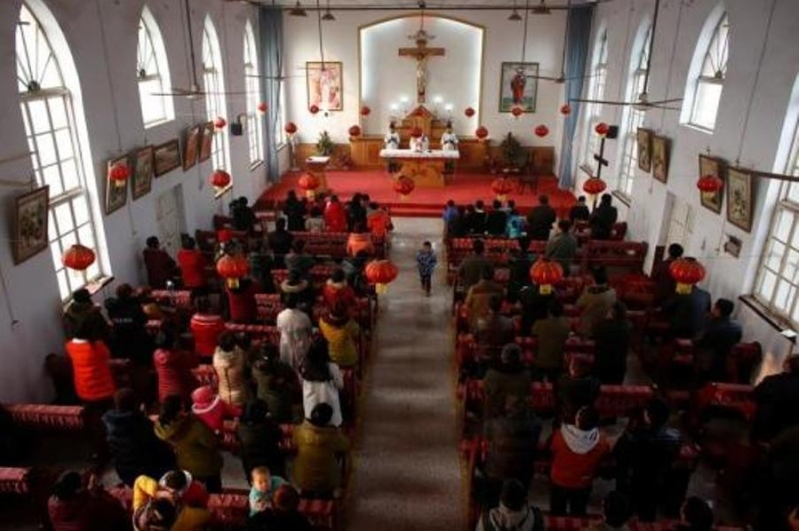
Catholic church leaders from the diocese of Datong in China have urged the Vatican to help push against the persecution that they face and to not make compromises with the Chinese government.
According to AsiaNews, eight church leaders recently sent a letter to the Vatican declaring that they "cannot sit down silent without any concern, even more we cannot stand by with folded arms."
"What is worth of our concern is the freedom of religious faith since it is a fundamental human right, that cannot be violated, forbidden or taken away. Obviously, many statements and proposals of the Government, we must not necessarily agree upon and accept, some of them we even oppose," they wrote.
"But, it is not possible to take away our freedom and right because we have a different faith. As a community of believers, we are even more concerned with the freedom of speech, since it cannot be separated from freedom of religion: without one there cannot be the other!"
The church leaders continue: "We now receive your control. The cross of our church and even the whole church has been demolished. The freedom of the faithful to attend our meetings is opposed. The church is forced to accept the guide of the Chinese Government. All these things make us worried and dissatisfied."
They add: "As believers, we know that the future decides the present. With this joint declaration of ours we hope that you can respect the right of the Church, respect every person: this is a bottom line that cannot be overtaken."
The church leaders identify specific instances where the Communist government has persecuted Christians, such as blocking them from buying Bibles from the internet and restricting large congregation meetings.
They also addressed a reported deal between the Vatican and China to elect bishops as chosen by the government, expressing concern the Holy See might "make compromises," turning them into "scapegoats in order to establish diplomatic relations."
China's approximately 12 million Catholics have been split between an underground church loyal to the pope and the state-supervised Catholic Patriotic Association.
Earlier, Chinese human rights activist Chen Guangcheng called the Vatican's pact with China over the selection of bishops "a slap in the face to millions of Catholics and other faithful religious people in China who have suffered real persecution under the CCP."
Chen, a blind lawyer who was imprisoned for his pro-life advocacy against forced abortions and sterilizations under China's former "one child policy," said he's personally "experienced the Communist Party's violence and brutality," and "known and worked with countless individuals in China who have been persecuted for their beliefs."
"I am sure that the active members of underground churches in China who have persevered against crippling persecution for so long can only feel betrayed," he continued.
Chen contended that the Vatican deal with the Chinese government brings Church leaders "closer to a Communist Party that is responsible for the deaths of over four hundred million unborn children and hundreds of millions of Chinese people."
"The CCP has been arresting priests, threatening congregants, and searching churches and places of worship. Many have disappeared and been tortured while under the regime's control, refusing to relinquish their beliefs to a degraded, intolerant political party, and proving the power of their faith," Chen wrote.
Religion is "at odds with the self-serving atheism and extreme party loyalty the CCP has long sought to inculcate in the population," he argued. "Religion asks for ... faith in ideas that are beyond the reach of the regime's clutches."
However, Vatican spokesman Greg Burke said that the aim of the accord "is not political but pastoral, allowing the faithful to have bishops who are in communion with Rome but at the same time recognized by Chinese authorities."
Additionally, Pope Francis has reassured the Chinese Catholic community of his support and asked them to trust his decision.
He also reminded Catholics worldwide that they have "an important duty: to accompany our brothers and sisters in China."
"Had Abraham demanded ideal social and political conditions before leaving his land, perhaps he would never have set out," the pope wrote, "It was not historical changes that made him put his trust in God; rather, it was his pure faith that brought about a change in history."
As for Catholics inside China, Francis urged them to continue speaking out for the sake of building a more "humane" society. "At times, this may also require of them the effort to offer a word of criticism, not out of sterile opposition, but for the sake of building a society that is more just, humane and respectful of the dignity of each person," he wrote.







